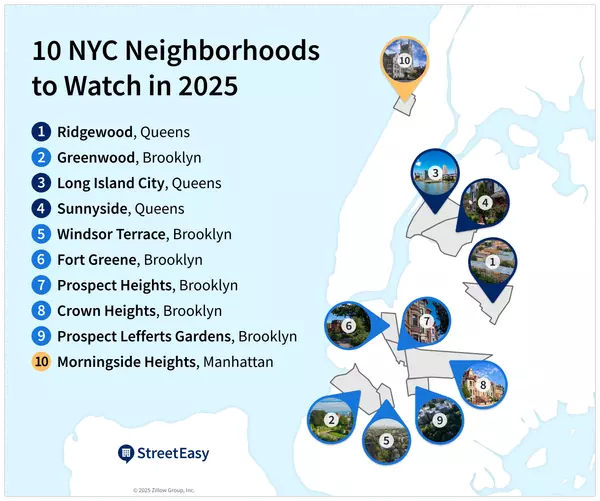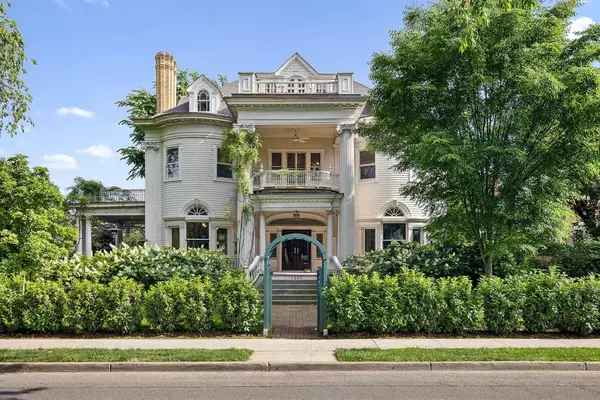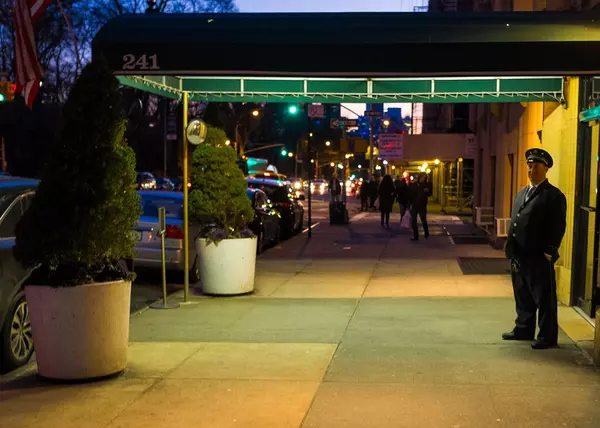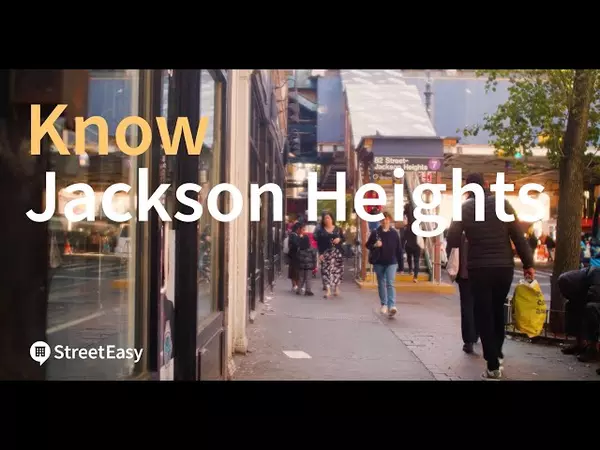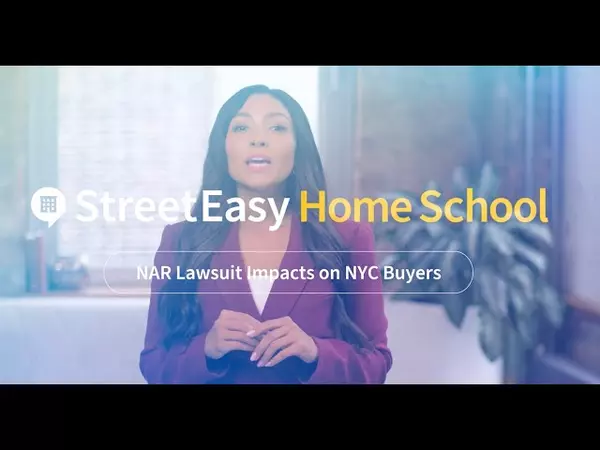
The NAR Settlement's Implications for the NYC Market: What We Know
Ever since the National Association of REALTORS® (NAR) agreed to settle the Sitzer-Burnett lawsuit in March 2024, real estate agents nationwide have felt uncertainty about how it will impact the industry. New York City agents in particular, most of whom aren't members of NAR, might be under the impression that the agreement won't affect them. But with the Real Estate Board of New York (REBNY) and several national brokerages that operate in NYC opting into the settlement, that may no longer be the case.StreetEasy® is here to support NYC agents like you in these moments of change, helping you adapt your business to succeed. Here's what we know about the NAR settlement’s implications for the NYC market.StreetEasy is closely monitoring the NAR settlement and its impact on the NYC market. We'll be updating this article as more information becomes available.For a list of known implications for the national market, see 9 Important Agent Takeaways From the NAR Lawsuit Settlement from Zillow.NAR's policy changes go into effect August 17, 2024Following the announcement of the settlement in March, NAR has established a set of policy changes applying to any REALTOR® Multiple Listing Service (MLS) and its members or participants. These new policies will take effect August 17, 2024.Non-REALTOR® MLSs opting into the settlement must implement the policy changes by September 16, 2024Non-REALTOR® MLSs that have opted into the settlement are required to implement the NAR policy changes by no later than September 16, 2024. For precise information, see the NAR settlement timeline.With non-REALTOR® MLSs that operate in NYC opting into the settlement, the policy changes would apply to many NYC agents. For instance, should REBNY reach an agreement to join the settlement, its Residential Listing Service (RLS) would be a non-REALTOR® MLS subject to the settlement’s rules. Agents should work with their brokerage or brokerage's attorney to confirm their compliance needs and effective dates.MLSs and non-REALTOR® MLSs opted into the settlement can no longer display commission offersOn both REALTOR® and non-REALTOR® MLSs that have opted into the settlement, listing agents and sellers will be prohibited from displaying offers of compensation to buyer's agents.In practice, this means agents won't be able to see or communicate offers of commission on MLSs covered under the settlement. However, as NAR explained in March, buyer's agent compensation offers can be an option consumers pursue outside the MLS. For more on compensation offer policies per the NAR settlement, see their FAQ.For REBNY members, offers of compensation to the buyer's agent must originate from the sellerIndependent of the NAR settlement, REBNY introduced five revisions to its Universal Co-Brokerage Agreement (UCBA) effective as of January 1, 2024. One of these revisions, that of decoupling commissions, directly impacts REBNY-member NYC agents. The revision requires offers of compensation to the buyer's agent to originate from the seller, not the listing agent, even if it's on the seller's behalf:To promote transparency and consumer confidence in the residential marketplace, the UCBA will now require offers of compensation to the buyside broker to originate from the Seller/Owner. Listing Brokers will no longer be permitted to make the offer of compensation to the buyside broker – even if it is on the Seller's/Owner's behalf.Furthermore, buyer's agents must be compensated by the seller (not the listing agent):Assuming there is an offer of compensation from the seller and the buyer's broker has accepted the offer, the buyer's broker will be directly compensated by the seller or owner of the exclusive property, which should occur at the closing as is customary in the New York City area.For more information, see REBNY's FAQ on decoupling commissions.Many agents will be required to sign a written agreement with buyers before touring homesA condition of the NAR settlement requires "MLS Participants working with a buyer to enter into a written agreement with the buyer prior to touring a home." This will also apply to any NYC brokerage or non-REALTOR® MLS opting into the settlement. Written agreements are an opportunity to add transparency, promote open conversation, and set proper expectations with your buyer clients. In light of this, StreetEasy created a short-term, non-exclusive Touring Agreement to help agents adhere to the new industry standard - without having a potential buyer sign an exclusive agreement before a tour. Meant as an introductory, consumer-friendly agreement and drafted with New York State compliance in mind, it sets expectations for the buyer concerning representation, and helps lay the foundation to discuss compensation and exclusivity in a subsequent agreement when you and the buyer are ready. For more information, see StreetEasy's Touring Agreement: What Agents Need to Know.Some NYC brokerages have introduced their own brokerage-specific agreements for use ahead of a tour, separate from StreetEasy's Touring Agreement. Buyer's agents are free to use either agreement.There is rising consumer awareness about commissionsDespite the media buzz around the settlement since March, in terms of policy, much of the settlement agreement isn't anything new. For example, commissions have always been negotiable, and agents were already prohibited from filtering listings by compensation offer. That said, many consumers have been paying attention to the news as well, and are increasingly aware of the factors that affect them - like their ability to negotiate commissions.Agents nationwide, including in NYC, can reasonably expect this shift among buyers and sellers. Accordingly, agents should approach the first conversation with a buyer knowing how to show their value and turn a prospect into a loyal client.NAR must create and update educational materials to reflect the changesThe settlement requires NAR to develop educational materials that are consistent with the policy changes, and eliminate any previous materials that are contrary to them. To stay up-to-date, see their NAR Settlement: Get the Facts hub containing the latest materials, resources, and news pertaining to the settlement agreement.For more information and resources on how to adapt and thrive in today's changing industry landscape, visit our Latest Industry Standards hub for agents.

10 Ways to Generate Real Estate Leads in NYC
Disclaimer: The contents of this article are industry best practices which were sourced from StreetEasy data and interviews with our Agent Advisory Board, unless noted otherwise. Any scripts provided are only meant to act as examples and are not required. Nothing in this presentation is intended to be legal advice. For specific questions about any duties or obligations arising out of a real estate transaction, check your local and state licensing laws and regulations, contact your broker, or an attorney.With its high real estate prices, New York City attracts many agents seeking a lucrative career - and for good reason. In May 2024, the median sale price of a home ranged from $575,000 in the Bronx to $1.2 million in Manhattan, representing sizable potential commissions. But don't forget, closing exciting deals starts with the not-as-fun task of generating leads, which can be tricky in NYC's highly competitive market. If you're looking for ways to generate real estate leads, here are 10 ideas to consider.1. Compare brokerages You may be surprised that an agency's size can impact how you find leads - from the level of training and ongoing support you receive, to the network you can access. For example, bigger brokerages tend to offer more freedom to build your own brand. Their name and reputation may also help boost your credibility with potential clients. On the other hand, smaller agencies may give you more opportunities to connect with experienced agents and make local connections to grow your book of business.So before joining a brokerage, consider taking a step back and thinking about your preferences. You may even want to chat with agents from boutique agencies and big-name brokerages to get a feel for the differences.2. Choose open houses over networking eventsReal estate networking events can be costly and time-consuming. Plus, many people are there to sell something rather than build long-term, mutually beneficial connections. Your time and marketing dollars are precious, so why not consider attending or hosting open houses instead? This allows you to see what's on the market, meet other agents, and connect with potential clients.3. Don't dismiss small commissionsThere's something to be said for avoiding deals that take up a lot of time and yield a small return - but be wary of taking that line of thinking too far. Overlooking a deal simply because of a small commission may cause you to miss out on future opportunities. You never know which deals could lead to a repeat client, referral, or bigger deal later on.4. Position yourself as a thought leaderNYC buyers and sellers are looking for agents who stand out from the competition. One way to do that is by establishing yourself as a thought leader. For many agents, this means staying up-to-date on the latest market trends and sharing your unique insights publicly. You can keep track of the NYC market with resources like market reports from StreetEasy® and our Data Dashboard. Then, all that's left is to showcase your expertise, perhaps by sharing your thoughts on LinkedIn, other social media platforms, or a newsletter.5. Start a newsletterAn agent newsletter is a great place to highlight your expertise. It also allows you to show up regularly in your prospects' inboxes without coming across as too salesy. If you fill your newsletter with high-quality content - like helpful buying and selling tips, market reports, and enticing listings - your readers will look forward to your emails and may think of you when they're ready to buy or sell. Not sure what to include in your newsletter? See our 10 content ideas for your real estate newsletter for inspiration.6. Lean into your expertise We won't lie to you - agent competition in NYC is fierce. To stand out, you'll want to showcase your NYC-specific real estate experience, from property types and neighborhoods to even certain buildings. You can highlight your knowledge and experience in places like your agent bio, social media, newsletter, and other marketing materials.You can also lean into your NYC real estate expertise by joining StreetEasy Experts. The program allows you to connect with prospects in need of your exact experience, while you receive support from a dedicated Business Advisor. Plus, you only pay when you close a deal!7. Advertise on the right platformsYou might be bombarded by real estate platforms urging you to advertise with them. But before you take the plunge, it's a good idea to do your research. We recommend checking the platform's audience size and quality, payment structure, and success rate.For example, StreetEasy and Zillow Group's other consumer brands have on average 70% of market share for the online real estate category in New York. This means you're accessing a large audience of potential leads when you join Experts or advertise with Featured Listings.8. Tap your current leads and clientsSometimes the best source of new leads are the ones you already have. Try reaching out to your current leads to see if they know anyone else who's in need of a real estate agent. And while you're at it, ask your existing clients if they're looking to buy or sell again, or know someone who is.9. Embrace social media According to a report by the National Association of REALTORS®, more than half of realtors say they get quality leads from social media, with the most popular platforms being Facebook (90%), Instagram (52%), and LinkedIn (48%). TikTok is quickly growing in popularity, too, so consider posting videos there featuring home tours, real estate tips, or NYC market updates. When choosing which social media platforms to use, it's a good idea to research which ones your ideal clients spend the most time on and the kind of content they enjoy consuming.10. Make local connections Some of the most valuable real estate connections are made organically. Consider engaging with the community by joining local organizations (even if they're not related to real estate), volunteering, and frequenting small businesses. These activities allow you to give back to the community and build long-lasting connections that may turn into deals later on.StreetEasy is an assumed name of Zillow, Inc. which has a real estate brokerage license in all 50 states and D.C. See real estate licenses. StreetEasy does not intend to interfere with any agency agreement you may have with a real estate professional or solicit your business if you are already under contract to purchase or sell property. StreetEasy Experts are third-party real estate agents (licensees/professionals, etc.) who are not licensed with Zillow, Inc.

From Co-op to Condo: Working With NYC Property Types
Disclaimer: The contents of this article are industry best practices which were sourced from StreetEasy data and interviews with our Agent Advisory Board, unless noted otherwise. Any scripts provided are only meant to act as examples and are not required. Nothing in this presentation is intended to be legal advice. For specific questions about any duties or obligations arising out of a real estate transaction, check your local and state licensing laws and regulations, contact your broker, or an attorney.As an agent, you get to help people fulfill their dream of owning a home - and in NYC, that typically means a co-op, condo, or townhouse. To help your clients achieve their real estate goals, it's a good idea to understand these three property types, their unique markets, and how their differences impact the buying and selling process.What is a co-op?When a buyer purchases a co-op, short for "cooperative," they're actually purchasing shares of a corporation that owns the building. Typically, the bigger the unit, the more shares the buyer will own.What is a condo?Unlike with co-ops, a condo buyer purchases the unit outright and receives a deed of ownership. They also co-own the building's shared spaces, such as parking lots, elevators, pools, and hallways.What is a townhouse?A townhouse is a home that's attached on one or both sides to another townhouse or building. They are typically one- or two-family homes, and the owner is responsible for the entire structure.Market differencesCo-op marketAt any given time, the majority of homes for sale in New York City - around 75% - are co-ops. They're typically less expensive than condos, but buying one requires getting approved by the co-op board, which can be a challenge. Therefore, co-ops can be more difficult to buy and sell.Condo marketCondos tend to be more expensive than co-ops, but the approval process is less arduous. As a result, they're often easier to buy and sell. There are fewer of them in NYC, but whenever a new development is built, it's more likely to be a condo building.Townhouse marketTownhouses are one of the most sought-after property types, but there are few of them on the market and not all neighborhoods have them. This makes them highly expensive and competitive. There are also several different types of townhouses found in NYC, and the market can vary for each.Stay up to date on the latest market trends using StreetEasy's Data Dashboard, where you can filter metrics by property type (use "Single Family" for townhouses), borough, neighborhood, and more. Read our market reports, too, to get in-depth insights from our experts.Differences in the application processBuying a townhouse is like buying a traditional house in that there's no application or approval process. Co-ops and condos, on the other hand, do require applications - although there are major differences between the two.Co-op applicationsCo-op buyers have to go through a strict application and approval process. To start, they must submit an application and all required documentation, such as financial information, reference letters, and employment verification. This may be referred to as a co-op board package.Buyers then undergo an interview with the co-op board. A board may choose to reject a buyer for any number of reasons - from unsatisfactory financials to job history to simply "not the right fit." The entire process can take as long as several months.Condo applicationsThe application process for condos is far less demanding. Most buyers simply need to submit an application along with financial documents if they're financing. Condo boards do have what's called the "right of first refusal," which means they can override a purchase and choose to buy the condo at the same price, but few exercise this right.Maintenance fees vs. common chargesEach month, co-op owners pay maintenance fees, which go toward the building's operating costs such as insurance, staff, trash removal, and more. It also covers property taxes and any underlying mortgage payments. These fees are in addition to an owner's monthly mortgage payments.Condo owners pay monthly fees called common charges. They cover building operating costs, but they don't include property taxes; each condo owner pays taxes for their own unit.Subletting and pied-à-terre rulesCo-ops tend to have strict rules about whether owners can rent out their units or use them as a pied-à-terre (secondary residence). Some co-op boards ban subletting entirely, while others impose a fee or limit on how long a buyer can rent the unit out. Some co-ops allow pied-à-terres, but they may restrict owners from allowing others to live in their unit when they're not there.Condos, on the other hand, tend to be more relaxed on whether you can use your unit as a rental or pied-à-terre. However, they typically don't allow rentals shorter than six months.Closing costsFor co-op closing costs, buyers generally pay around 2-6% of the purchase price. Condo and townhouse closing costs tend to be higher due to mortgage recording taxes and title insurance. For any sale over $1 million, buyers must also pay a mansion tax, and the rate increases with the purchase price.What to expect when selling a co-op, condo, or townhouseSelling a co-op can be more complicated and take longer due to the approval process. They also tend to have strict open house rules, and some ban them entirely.Selling a condo is usually less complicated. But bear in mind that a deal can fall through if the condo association feels the accepted offer is too far below market value. Selling a townhouse is the least complicated since there are no boards to answer to, but fewer buyers can afford them.Whether you're selling a co-op, condo, or townhouse, be sure to take advantage of StreetEasy's Listing Insights tool. You can track your listing's activity over time, compare the property to others that have sold recently, and share the insights with your seller.NYC's fast-paced, ever-changing market can be tough to navigate, and your clients need your expertise to buy or sell successfully. By understanding the city's property types and their differences, you're better equipped to advise your clients and position yourself as their go-to agent.
Recent Posts
